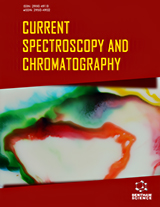Abstract
Background: Silymarin (SM) is a mixture of seven flavonolignans (FL) and one flavonoid extracted from the seeds of the milk thistle plant. The major FLs include silibinin, silychristin, silydianin, and isosilibinin. Silibinin, a mixture of two diastereomers, i.e., silybin A and silybin B, has been found to be the most active biomarker molecule in the extract of SM. Some studies have also demonstrated the usefulness of other biomarkers. However, most studies have characterized SM extract with respect to silibinin only. In our previous study, we isolated five different biomarkers (silychristin, silibinin, and isosilibinin (mixture of isosilybin A and B)) and denoted them as SM phytopharmaceuticals (PP). In other research, we have combined the SM PP with two bioavailability enhancers, i.e., Piperine (PIP) and fulvic acid (FA). The formulation containing 140 mg SM PP, 10% PIP and 20% FA was optimized using dissolution testing, and its enhanced permeability was demonstrated by ex-vivo gut sac study and Confocal laser scanning microscopy (CLSM).
Methods: In this research, we have compared the bioavailability of SM suspension with SM PP and the optimized formulation in C57BL/6J mice. Furthermore, the bioavailability estimation was done for three biomarkers simultaneously, i.e., silychristin, silibinin, and isosilibinin.
Results: Comparing the results for three different groups, it was found that the order of Cmax was F1> SM PP> SM suspension for all three biomarkers. For all the three biomarkers, the value of Cmax was at least two times more for F1 as compared to SM suspension. However, the Tmax remained constant i.e., 2 h for all the three groups and for all the three biomarkers. Furthermore, the clearance values were found to be in the order SM suspension > SM PP > F1.
Conclusion: The PIP and FA present in this combination increased the clearance value and Cmax, respectively, of the formulation. Hence, this combination of SM PP with PIP and FA has shown a better pharmacokinetic profile than SM suspension, thus, it can serve as a better alternative for the treatment of liver disease.
Graphical Abstract
[http://dx.doi.org/10.1016/j.chroma.2006.03.053]
[http://dx.doi.org/10.1021/acs.jnatprod.6b00750]
[http://dx.doi.org/10.1021/np400943b]
[http://dx.doi.org/10.1073/pnas.0914009107]
[http://dx.doi.org/10.1158/0008-5472.CAN-04-4662]
[http://dx.doi.org/10.1590/s2175-97902022e20160]
[http://dx.doi.org/10.1155/2018/1507834] [PMID: 30108644]
[http://dx.doi.org/10.1016/j.jchromb.2012.06.003] [PMID: 22766231]
[http://dx.doi.org/10.1016/j.cjac.2022.100174]
[http://dx.doi.org/10.1080/10837450.2023.2227966] [PMID: 37342048]
[http://dx.doi.org/10.1124/dmd.113.052423]



























